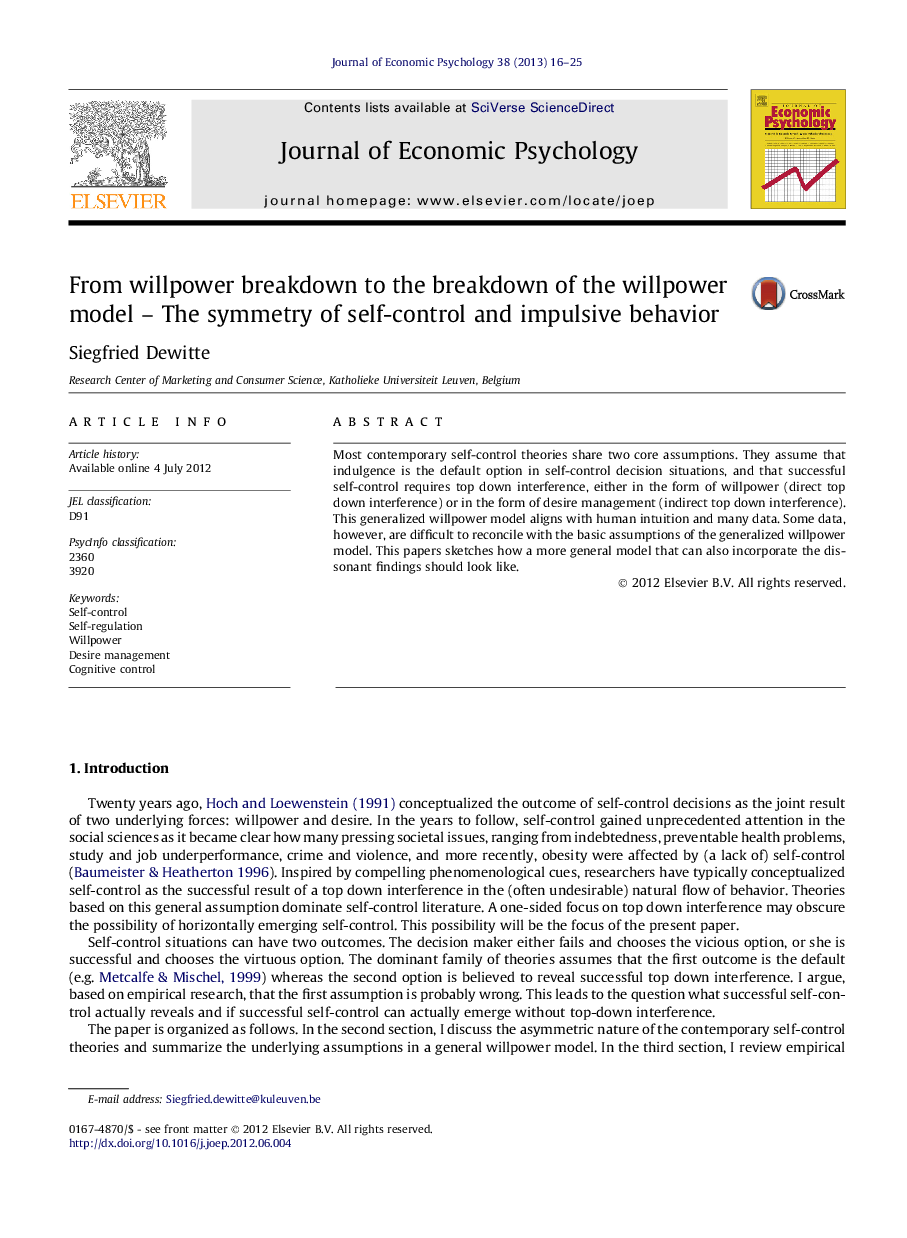| Article ID | Journal | Published Year | Pages | File Type |
|---|---|---|---|---|
| 884969 | Journal of Economic Psychology | 2013 | 10 Pages |
Most contemporary self-control theories share two core assumptions. They assume that indulgence is the default option in self-control decision situations, and that successful self-control requires top down interference, either in the form of willpower (direct top down interference) or in the form of desire management (indirect top down interference). This generalized willpower model aligns with human intuition and many data. Some data, however, are difficult to reconcile with the basic assumptions of the generalized willpower model. This papers sketches how a more general model that can also incorporate the dissonant findings should look like.
► Self-control theories assume that impulsive behavior is the default behavior. ► Self-control theories assume that self-control requires top down interference. ► Literature review suggests that both assumptions may be wrong. ► Cognitive control theory provides an alternative theory of self-control.
